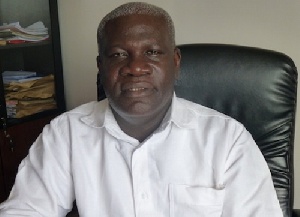The Industrial and Commercial Workers Union (ICU) has described the recent 10% increment in the minimum wage as inadequate compared to the cost of living in the country.
The National Tripartite Committee last Thursday announced that the minimum wage had risen from 9.68 Ghana cedis to 10.65 Ghana cedis.
According to the General Secretary of the ICU, Solomon Kotei, although they welcome the increment, it is inadequate to the survival of Ghanaian workers living in today`s economy.
He lamented over the high cost of living and called on government to look in the direction of working to stabilise the economy.
“The increment does not match recent living conditions. The cost of food, accommodation and healthcare is very high, it is incomparable to the salary one receives, and that makes life very difficult to live,”he said.
Nonetheless, Mr. bKotei told Kasapa FM: “But it is all dependent on how well the company the person is working for is doing, because the employer cannot pay salaries with a loan, definitely the company must be doing well in order for the employer to be able to pay his workers well,” he added.
Mr. Kotei said there is the need for the emergence of more private enterprises, so they can also shoulder the burden of unemployment in the country and also pay decent wages to their workers.
The implementation of the wage increment is expected to take effect on 1st January 2019.
The decision was taken after a meeting held by the Tripartite Committee made up of government, Labour and the Employers Association.
A statement from the National Labour Commission said “the committee directs that any establishment, institution or organization whose Daily Minimum Wage is below the new National Daily Minimum wage should adjust its wages upward with effect from 1st January, 2019”.
The Committee warned that “any establishment, institution or organization that flouts the new rate shall be sanctioned in accordance with law.”
Business News of Monday, 30 July 2018
Source: kasapafmonline.com













